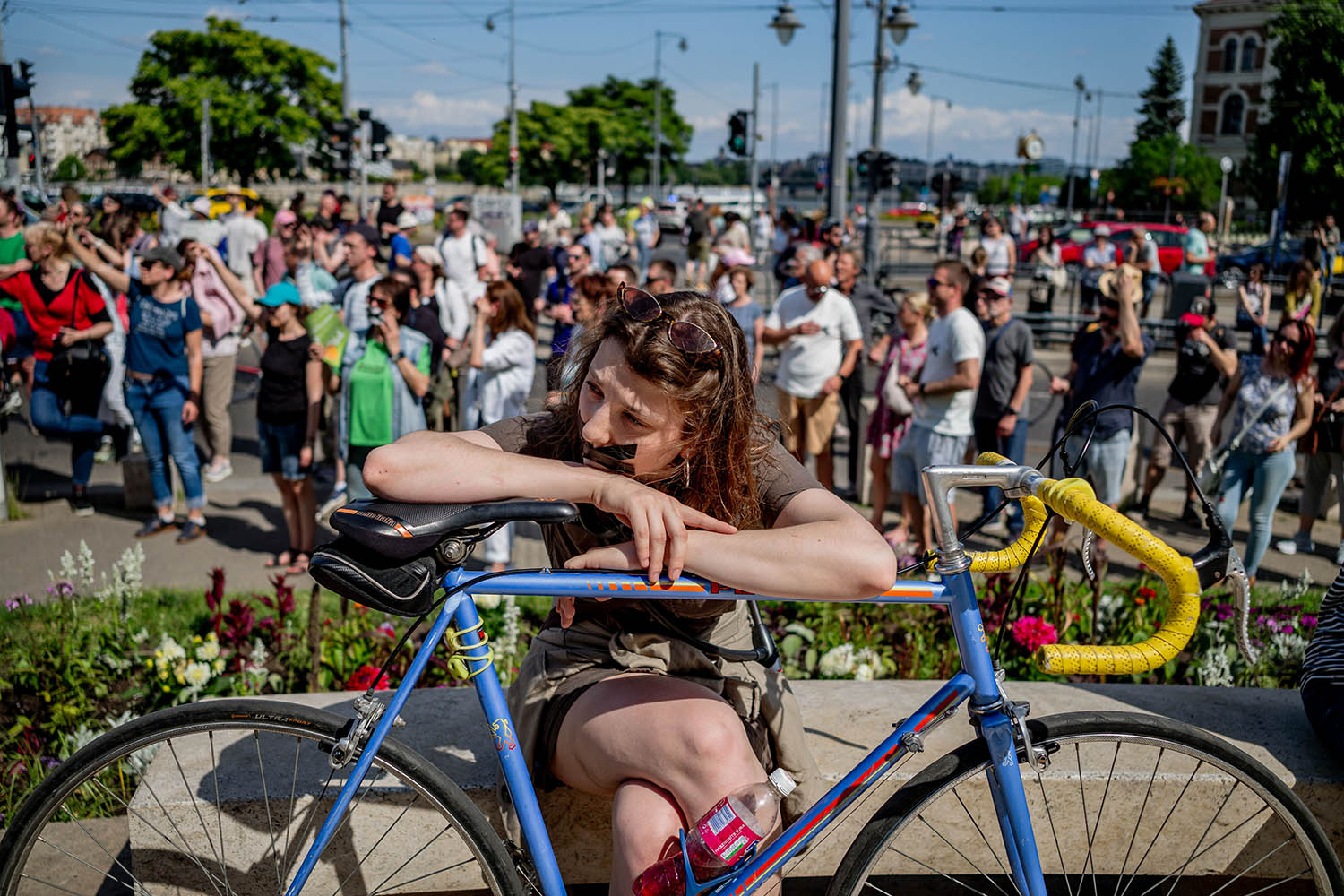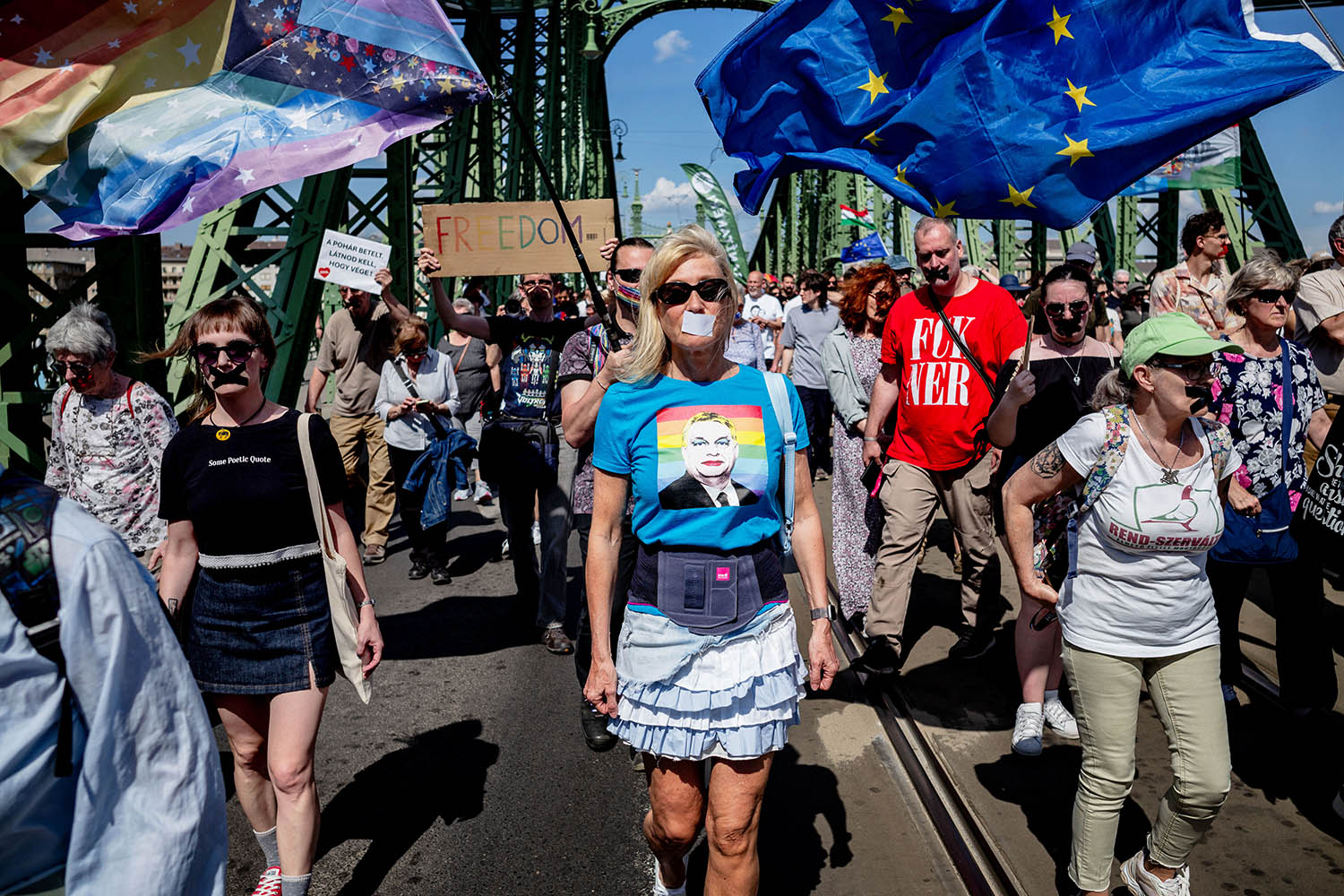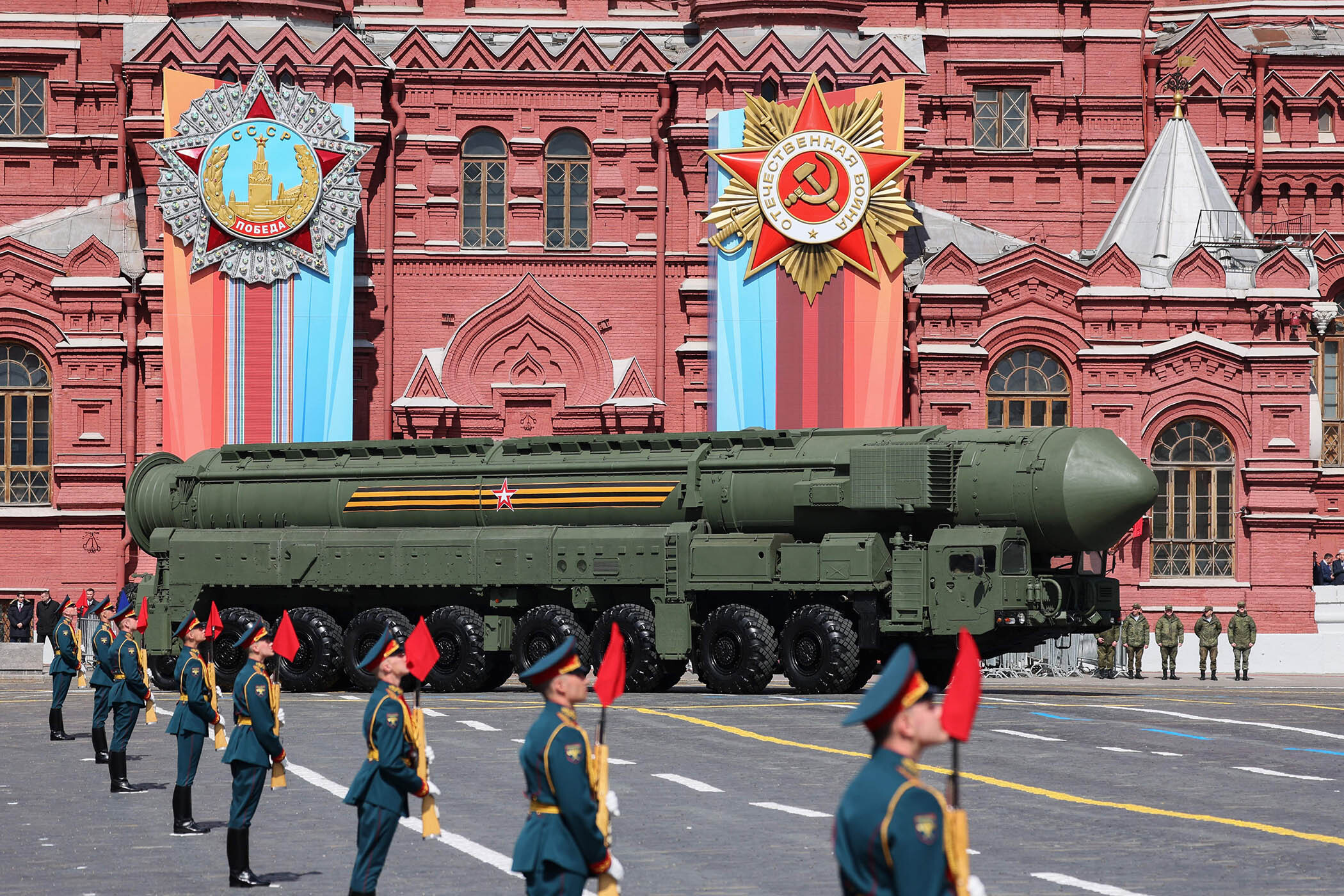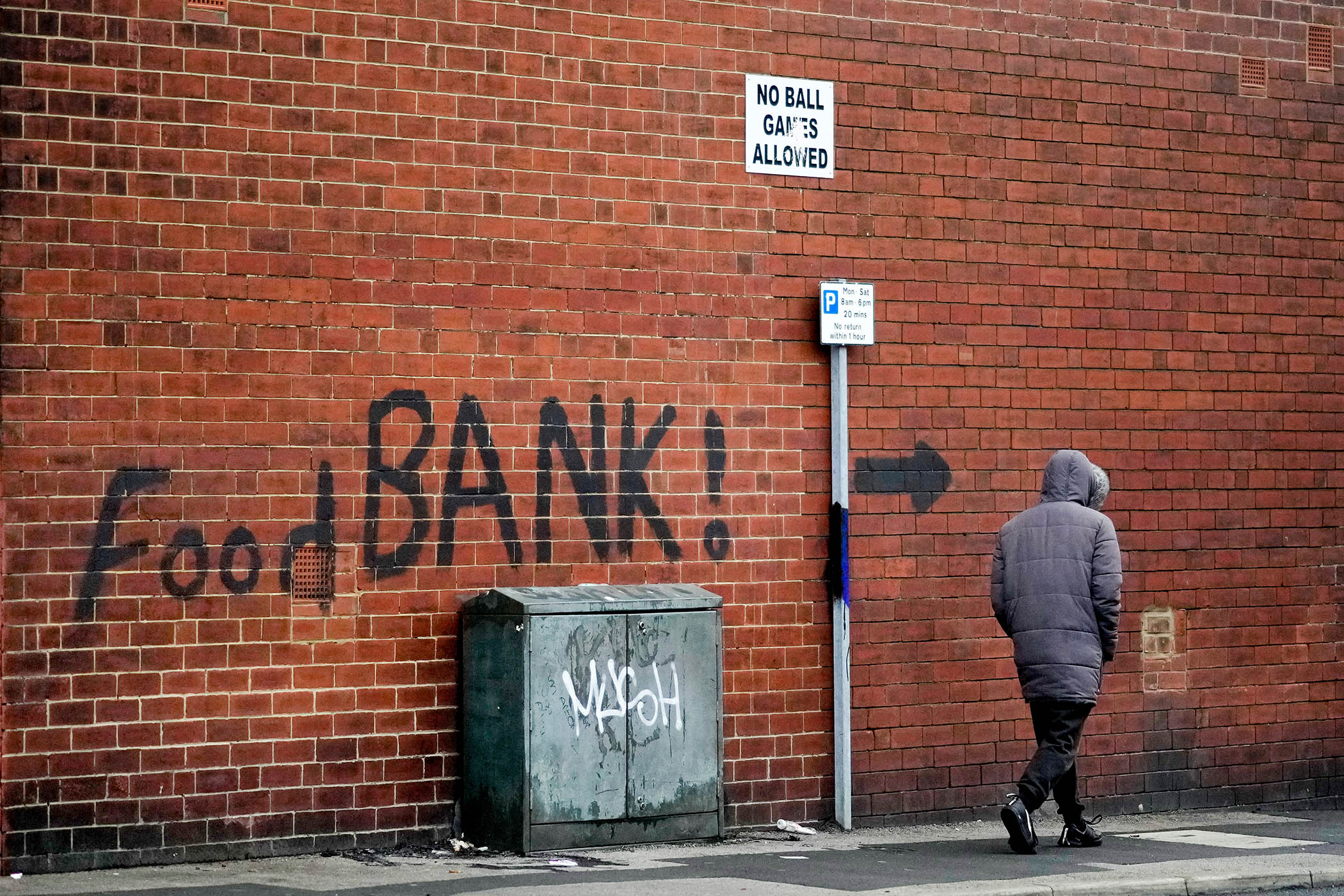At an amusement park on Óbuda island, in the middle of the Danube in Budapest, half a dozen members of the city’s LGBTQ+ community are posing for a photoshoot, wearing spangly outfits and glittering makeup. The sun is shining and the atmosphere is joyful and defiant: ban or no ban, they will march at Budapest Pride on Saturday.
“We’ll all be there,” says journalist and activist Ádam András Kanicsár. “For sure.”
Now celebrating its 30th anniversary, Budapest Pride has become a potent symbol of Hungary’s polarised politics in the run-up to parliamentary elections next year.
In an unprecedented move, police in Budapest have banned the event, citing child protection issues, in what is seen as the culmination of prime minister Viktor Orbán’s campaign to promote conservative pro-family “traditional values”.
For many of his opponents, Budapest Pride, which is expected to attract an estimated 40,000 people, including more than 70 members of the European Parliament, is a celebration of liberal European values. It has become a focus for those hoping for the end of Orbán’s 15-year grip on the country.
Those hopes are pinned on Péter Magyar, the 44-year-old leader of Hungary’s largest opposition party Tisza (Respect and Freedom), and a member of the European Parliament.
His promises to boost the ailing economy by unblocking frozen EU funds, to eliminate corruption, address the cost of living crisis and overhaul health and education systems, are popular with Hungarian voters. Tisza was only launched last year but polls suggest that 51% of those who have decided who to back in next year’s election would vote for them – 15% more than those who would vote for Fidesz, and an unprecedented challenge to Orbán.
On Pride, however, Magyar, a former member of Fidesz, remains silent. To win next year he must retain core conservative voters while also attracting a younger, more liberal electorate.
Related articles:
“When it’s our turn, everyone will live how they want, love who they want and how they want as long as it does not violate the law or others,” is all he has said on the issue.

A protester against Orbán, her mouth taped. (Photograph by János Kummer Getty)
Daniel Róna, a political scientist and director of the independent think-tank 21 Research Center, said it is a pragmatic, and understandable, choice.
Newsletters
Choose the newsletters you want to receive
View more
For information about how The Observer protects your data, read our Privacy Policy
“In Hungary, the number of people supportive of gay marriage is growing and homophobia decreasing, but Pride is still controversial. Among Peter Magyar’s voters, many disapprove or are indifferent, so there is pressure on him. If he were to vehemently stand up for Pride, he would risk the loyalty of those against it.
“While everyone is talking about Pride, attention is not on inflation, housing, healthcare, and the education system – issues that can be more damaging for the Orbán government.”
Eszter Polgari of the Háttér Society, an LGBTQ+ support and advice association, agreed: “Magyar’s strategy is to avoid anything controversial. He is dodging the question and focusing on topics that work for him… corruption, health, child protection.”
Since coming to power in 2010, Orbán has transformed Hungary into what the European Parliament called a “hybrid regime of electoral autocracy”, citing a breakdown in democracy, fundamental rights and the rule of law. Over the past 15 years, Fidesz has taken aim at the media, judges, migrants and minority groups. Hungarians refer to “boiling frog syndrome”: the creeping erosion, then complete removal, of rights they assumed guaranteed.
In 2020, the government introduced Section 33, which prevents trans people from changing their gender identities and names. The following year, Fidesz amended an existing child protection law to limit the exposure of minors to homosexual material, including books, films and education. Same sex partnership is legal, but marriage is not, and, barring rare exceptions, only married couples can adopt children.
In his state of the nation speech in February, Orbán warned Pride organisers “not to bother preparing” this year’s event, saying it would be “a waste of time and money”. The following month, Hungarian MPs voted to ban Pride events citing the child protection law. In April, the Hungarian parliament, where Orbán has an unassailable majority, voted for constitutional changes codifying the child protection legislation. Budapest police used this to justify the Pride ban.
In an attempt to circumvent the ban, Gergely Karácsony, the pro-Pride mayor of Budapest, announced last week that the city would organise a parade as a municipal event. Three days later the police banned that too. On Friday, Karácsony said the event would go ahead.
“Budapest city hall will organise the Budapest Pride march on 28 June as a city event. Period. This ban has no value,” he wrote on Facebook.
Speaking to The Observer, Karácsony added: “This is a colourful city where all social groups are represented. There are no first and second-class citizens in Budapest.”
He accused the government of using Pride as a smokescreen. “They sparked this debate to stir up their voters by presenting them with an enemy. This steers the attention away from the horrific economic situation.” His comment was seen as reference to a recent survey by the European Union’s agency Eurostat that ranked Hungary the poorest in the bloc.
‘They sparked this to present voters with an enemy and steer away from a horrific economic situation’
‘They sparked this to present voters with an enemy and steer away from a horrific economic situation’
Gergely Karácsony, mayor
Dr Zsolt Szekeres, a lawyer who represents an NGO coalition which includes Amnesty International and the Hungarian Civil Liberties Union and has challenged the Fidesz government’s anti-LGBTQ+ legislation in the courts, said the ban was in clear violation of international law and indicative of a wider problem.
“The Pride issue needs to be understood in a much broader sense. The Orbán government has been using the old but never quite disappearing strategy of stirring up hate and fear against one particular social group through fake news, intimidation and misrepresentation of facts. There have been many targets of this hate campaign and now it’s the LGBTQ+ community,” Szekeres said.
“People wake up in the morning and don’t know which of their fundamental rights are going to be taken away; that’s not a normal way to live. We can have a debate about LGBTQ+ rights and such debates are an essential part of democracy, but this is the opposite of democracy.”
Back on Óbudai island, the young LGBTQ+ activists take a pragmatic view of next year’s election.
“I don’t like that Peter Magyar doesn’t talk about LGBTQ+ issues but I can accept the tactics behind it,” Kanicsár said. “We have to reverse homophobic and transphobic laws but many people in Hungary feel the education and health systems are more critical and we must deal with them first.”
Tamas Garam, head of marketing for the Sziget festival, one of Europe’s largest music and culture festivals, applauded the politician’s strategic avoidance of the Pride controversy.
“The big trap for Magyar right now is how to support the young population without alienating his former Fidesz supporters. If he was to come right out and express support [for Pride] it would be used as a weapon by Viktor Orbán,” Garam said.

Krisztián Marton thinks Hungary is at a turning point. (Photograph by Péter Kálló/Rockstar Photographers)
Krisztián Marton, 35, a writer, feels that with Magyar as an opposition leader, Hungary is at a turning point.
“For the past 15 months the government has really turned up the heat on the LGBTQ+ community and the situation felt hopeless. Now, for the first time in 15 years, there’s a challenger who has a chance,” he said.
At the same time, there is an undercurrent of fear. Many say they will leave Hungary if Orbán wins the election next year.
“The main topic among us is if Orbán wins again, who is going where. If everyone leaves, it will be a tragic loss for this country,” Kanicsár says.
Despite the ban, few expect violence at Saturday’s Pride march. In the past counter protests have involved heckling and eggs but apart from 2006 and 2007 when extreme right-wing protestors attacked marchers, most Budapest Pride events have been peaceful. Police and the authorities are aware that any violence is likely to harm Orbán’s campaign more than Magyar’s.
Last Thursday, the transport minister János Lázár urged people to stay away from Pride. “The police say it is not legal and everyone should obey the law in Hungary. I think it will harm the gay community if they hold this Pride,” he said.
Others believe attacking Pride is having the opposite effect.
“People are angry because rights are being violated,” Polgari said. “I wouldn’t say the majority of the population support Pride as an event, it’s more the fact they oppose having their rights and freedoms taken away.”
Richárd, a 30-year-old IT project manager and father of two, said he and his family would be attending for the first time out of solidarity with the LGBTQ+ community.
“When someone’s rights are being taken away, that’s when you have to stand up for them. And when someone is challenging the basic human rights of my close friends, I’ll be there,” he said. “This is what I want to teach my children: to stand up for our friends and important values, even if it doesn’t affect us directly.”



